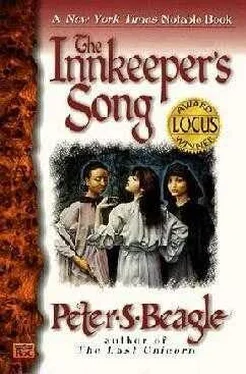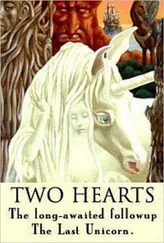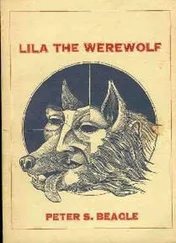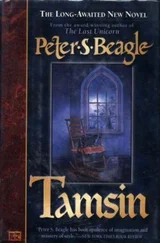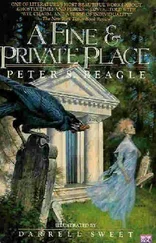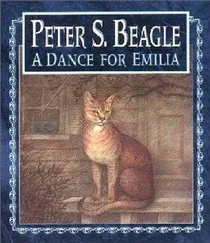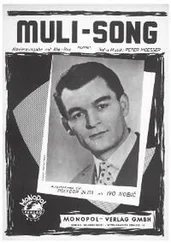Peter Beagle - Innkeeper's Song
Здесь есть возможность читать онлайн «Peter Beagle - Innkeeper's Song» весь текст электронной книги совершенно бесплатно (целиком полную версию без сокращений). В некоторых случаях можно слушать аудио, скачать через торрент в формате fb2 и присутствует краткое содержание. Год выпуска: 1993, ISBN: 1993, Издательство: ROC, Жанр: Фэнтези, на английском языке. Описание произведения, (предисловие) а так же отзывы посетителей доступны на портале библиотеки ЛибКат.
- Название:Innkeeper's Song
- Автор:
- Издательство:ROC
- Жанр:
- Год:1993
- ISBN:0-451-45288-7
- Рейтинг книги:5 / 5. Голосов: 1
-
Избранное:Добавить в избранное
- Отзывы:
-
Ваша оценка:
- 100
- 1
- 2
- 3
- 4
- 5
Innkeeper's Song: краткое содержание, описание и аннотация
Предлагаем к чтению аннотацию, описание, краткое содержание или предисловие (зависит от того, что написал сам автор книги «Innkeeper's Song»). Если вы не нашли необходимую информацию о книге — напишите в комментариях, мы постараемся отыскать её.
Innkeeper's Song — читать онлайн бесплатно полную книгу (весь текст) целиком
Ниже представлен текст книги, разбитый по страницам. Система сохранения места последней прочитанной страницы, позволяет с удобством читать онлайн бесплатно книгу «Innkeeper's Song», без необходимости каждый раз заново искать на чём Вы остановились. Поставьте закладку, и сможете в любой момент перейти на страницу, на которой закончили чтение.
Интервал:
Закладка:
When the old man saw me hanging about in the big shadows of the courtyard trees, he called my name, saying, “Little one, what are you doing so far from your kettles and cauldrons? Do you realize that the sun is refusing to set because it is so astonished to see you out in its light?” He gave me a dusty boiled sweet out of his coat pocket.
“No, it’s not,” I said. He didn’t seem to mind the awful heat at all—it might have been any other evening, except that I’d have been in the kitchen, running and fetching, stirring and scouring, trying to keep one jump ahead of Shadry’s long swinging arms. I said, “I don’t know what’s the matter with the sun or the weather or the people, but it’s nothing to do with me. I just want it to stop.”
He picked me up and swung me around in the air. He was very strong for somebody with white hair and thin old hands. He said, “Why, I can stop it, child, if that is what you wish. Shall I do that? Shall I argue with the sun and tell it to go to bed, so that you can get to your rest? Say the word and it shall be done.” I nodded, and he said, “Well, then,” and set me down, both of us laughing.
I went off a few steps and turned around again. I don’t know why. He was already stumping toward the inn door—not the one to the taproom, but the big carved one for the paying guests. When I called to him, to remind him of his promise, he just kept walking. He didn’t knock on the door, either, but pushed it open and went inside, bold as Karsh himself. The door slammed shut behind him, hard, without making a sound. I saw it.
Then right away the sky began to darken, and the sun stopped its awful slow clanging. Birds started making their night noises all at once. If I had turned my head, I know I would have seen the sun skidding down the sky, butter in the pan now, but I didn’t turn. I just stood there with my eyes closed, and felt the stars coming out.
LAL
It was absurd. I was never so ashamed of myself. Here we were—Soukyan, Lukassa, Rosseth, and I— crowded together around my friend’s bed, just as though he were about to read us his testament before folding his hands on his chest and wafting politely off into the next world. In fact, we were five friends doing the best we could to say a hopeless, terrifying farewell; but what I remember best is the pain in my still-tender ribs from containing a torrent of schoolgirl giggles. No excuse, absolutely no excuse. I think only Soukyan noticed anything, but if they all had it would serve me right.
He had been gone from us all that day and the night before: not dead, not wandering in his mind, but far away on a frontier we could not begin to imagine, fighting back the new moon. There was never a chance of that, of course, not even for him. But he fought on anyway— unconscious, drooling, wasted to a new moon of a man himself, he lay on a mattress in a tiny, shabby room and fought for daylight, and lost.
The instant the sun passed from sight, he gave a small, quick gasp and opened his eyes. As though he had only been interrupted by a cough or a witless question, he said, “Now this is what you will need to do about the griga’ath .” Of all that happened so soon afterward, of all that has happened to me since, nothing has ever been as frightening as those few words in that calm, rasping voice.
My friend said, “We have only a moment, so pay attention for once. There is no defeating or destroying a griga’ath —you are hearing me, aren’t you, Lal? It is possible, however, to divert it briefly, and perhaps escape, if you all do exactly as I tell you.” He looked around the darkening room. “Where is Tikat?”
Rosseth answered, his voice cracking hoarsely. “He is surely on his way—Karsh had him cleaning the sacrifice stones at the shrine. He will be here in a minute, I promise.”
My friend reached out and put his trembling hand over Rosseth’s hand. He said gently, “The griga’ath will destroy this place and everyone in it. You may be able to save a few people, I don’t know. I will not be able to help you.”
Soukyan was crying, not making a sound, standing with his shoulders back and one single tear at a time wandering down one side or the other of his nose. Lukassa’s face, for a wonder, was pulsing with color, and her mouth was drawn tight and hard as my friend went on. “There are beings, as you know, who can only travel in a straight line—the simplest screen will head the worst of them off—and there are others who cannot cross running water. Griga’aths have no such weaknesses.” He nodded toward a vase of silvery sweet-regrets on the table. “Fetch those to me, Lukassa. Quickly.”
Marinesha had set them there that morning, wilted and dry before she ever picked them, but a find for all that, so deep in that evil summer. Along with the sweet-regrets (in the south they grow taller and darker, and are called windshadows), she had also placed two or three shuli flowers in the vase. Shuli are always the exact shade of the sky above them; these were completely colorless, warm to the touch even in water. My friend took the vase from Lukassa, though he seemed barely able to hold it upright. The flowers stirred feebly between his hands.
“These will not save you,” he said. “The griga’ath will not recoil from them, shivering in a corner. But for perhaps an instant it may remember flowers. It may remember that it was human once.”
He never gave us a chance to break down. I think none of us dared to look at one another—I certainly did not— and for my part I felt as though all the blood in my body had turned to tears. He said, “It will look like me. You must understand that, for your lives’ sake. It will look exactly like me, and it will be hungry. Listen now. Throw the flowers in its path, vase and all—that had better be you, Soukyan—then turn and run. Do not look back, not even to aid each other. Do not meet the griga’ath’s eyes. Have you understood me?”
None of us could speak. I heard his impatient little sigh—familiar to me as my own breath, and as dear—and again I was oddly struck by the dry-eyed anger and resolve in Lukassa’s face. My friend said, “You must not weep when I go—there will not be time,” and at that moment the door opened and the old man in the red coat came sauntering in.
I know now about the fox. I know what he was, and I know how he and Soukyan met, and what they meant and did not mean to each other. But at that time I made no connection between him and courtly, over-jolly old Redcoat, and I was astonished to see Soukyan whirl on him furiously, shouting in a sibilant tongue that I should have recognized from hearing him speaking to the fox, that very first night. Redcoat paid him no mind at all, but beamed benignly on us all and started toward the bed. I barred his way, without knowing why.
“Let me pass, foolish woman,” he ordered me, in a voice that started out as Redcoat’s fox-bark and became something else, something I had also heard before. Behind me, my friend said softly, “Let him pass, Lal.” Then I knew who it was, and I stepped aside.
He did not shift shape until he was standing close beside the bed, looking down at my friend out of the fox’s yellow eyes. They were the first to change, turning the unfocused, pupilless blue that I remembered. The rest of the metamorphosis seemed to happen slowly—hideously, languorously slowly—yet when it was over, it was impossible to believe that anyone but Arshadin had ever been there, saying in his own flat, arid voice, “I told you long ago we would meet like this at the last. You cannot say I never told you.”
Читать дальшеИнтервал:
Закладка:
Похожие книги на «Innkeeper's Song»
Представляем Вашему вниманию похожие книги на «Innkeeper's Song» списком для выбора. Мы отобрали схожую по названию и смыслу литературу в надежде предоставить читателям больше вариантов отыскать новые, интересные, ещё непрочитанные произведения.
Обсуждение, отзывы о книге «Innkeeper's Song» и просто собственные мнения читателей. Оставьте ваши комментарии, напишите, что Вы думаете о произведении, его смысле или главных героях. Укажите что конкретно понравилось, а что нет, и почему Вы так считаете.
